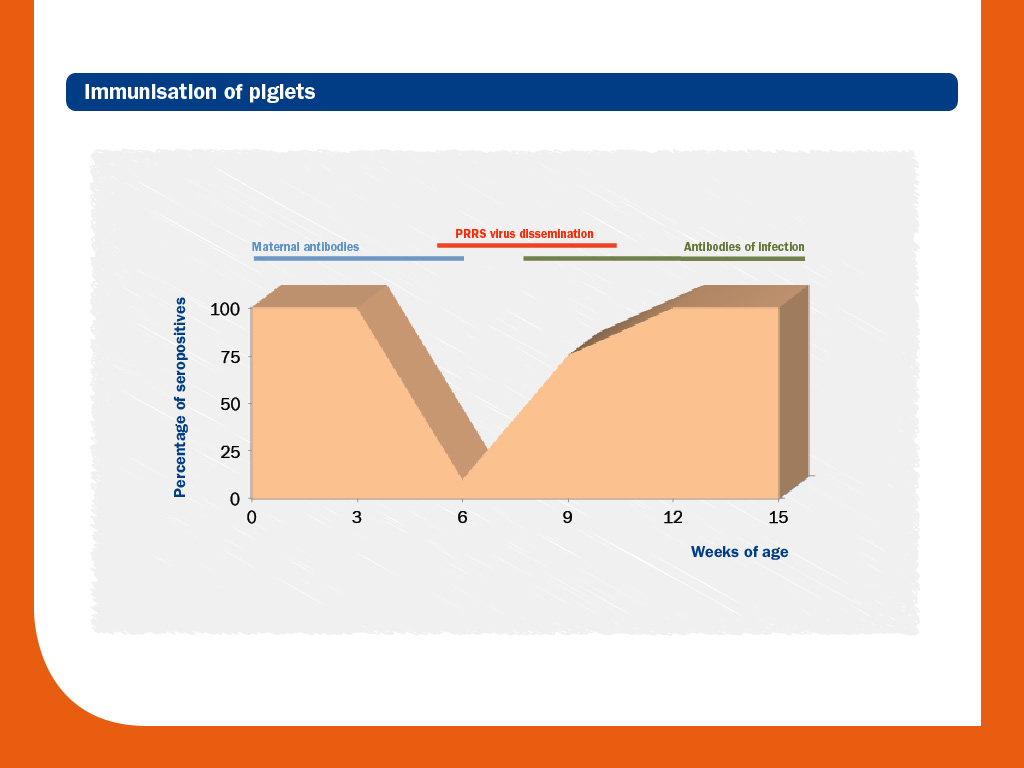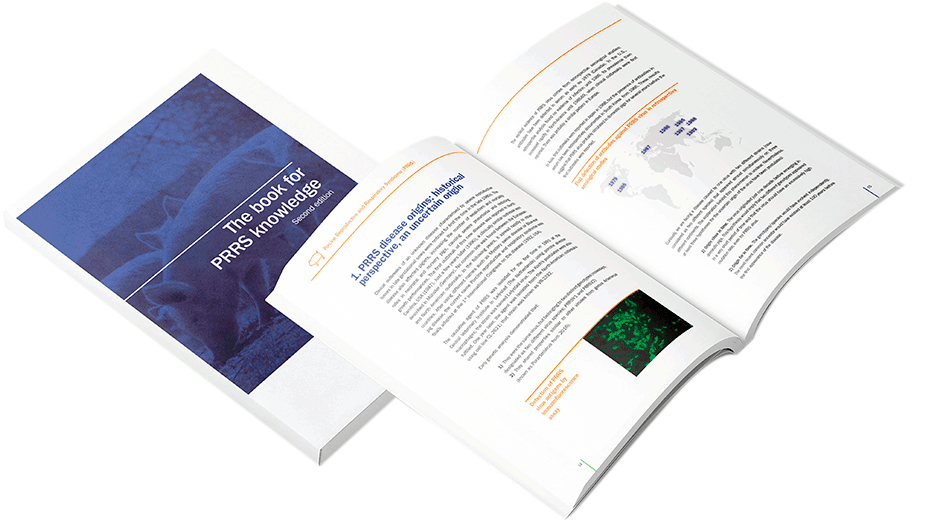The use of commercial vaccines should be the only possible option to immunise piglets.
To vaccinate piglets, two important points must be considered in order to choose the best moment:
- The development of immunity will require at least 3 weeks.
- Maternal antibodies can interfere with the vaccines.
If piglets are born viraemic (unstable farm) vaccines should be avoided, because vaccination of already infected animals will not be of any use.
In these cases, the most appropriate strategy would be to tackle the problem from the sows.
In a stable farm, vaccination of piglets can be considered if infection occurs after six weeks of age. Only under these circumstances, will be possible to adjust the vaccination timing to the development of immunity and the interference with the maternal antibodies.
Maternally derived antibodies and potential interference with vaccination:
Piglets are born defenceless. Unlike human and other species, no antibodies are transferred through the placenta from the sow to the piglets before birth.
Thus, piglets only receive passive immunity after birth, through to the ingestion of colostrum, which is secreted and ingested during the first hours after parturition.
The antibodies present in colostrum are known as maternally derived antibodies (MDA). Composition of colostrum is approximately 60% Immunoglobulin G (IgG), 30% Immunoglobulin A (IgA) and 10% Immunoglobulin M (IgM).
On the contrary, milk, which also contains antibodies, is mostly composed of IgG (70%) and IgA (30%).
In sows, MDA are induced during the gestation after the exposition to an infection and/or by vaccination.
In piglets, MDA may persist up to twelve weeks; the duration depends on the amount of colostral antibody taken and on the type of antigen against antibodies react.
During first days/weeks of life, MDA are essential for the survival of the piglet. Their main function is to neutralize pathogens.
Unfortunately, due to this ability they are also capable of interfering with vaccines. MDA has been observed to interfere with several vaccines, such as Influenza virus, Aujeszky’s disease virus, Classical swine fever virus and PCV2.
Also, this interference has been proven for Equine viral arteritis, a disease caused by a virus belonging to Arterivirus.
In the case of PRRS virus, few studies have addressed this topic:
MDA impair piglets’ humoral and cellular immune responses to vaccination against PRRS (Fablet et al., 2016).
What is the role of MDA on the post-vaccination humoral and cellular immune responses in piglets vaccinated against PRRS virus? To answer this question, piglets from a vaccinated breeding herd were divided into two groups: with a low (A-) or high level (A+) of PRRS virus-neutralizing MDAs. All pigs were vaccinated at 3 weeks of age:
- At first week post-vaccination, no vaccine virus was detected in A+.
- 85% of A- piglets and 0% of A+ piglets seroconverted by ELISA between 2 and 4 weeks post-vaccination.
- Neutralizing antibodies appeared 4 weeks post-vaccination in the A- piglets and 14 weeks post-vaccination in A+ piglets.
- The number of PRRS virus-specific IFNγ-secreting cells was significantly higher in A- piglets at 2 and 4 weeks post-vaccination than in A+ piglets.
Results show that MDA affect both post-vaccination humoral and cellular immune responses.
© Laboratorios Hipra, S.A. 2024. All Rights Reserved.
No part of this website or any of its contents may be reproduced, copied, modified or adapted, without the prior written consent of HIPRA.




